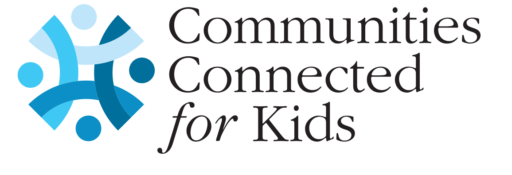Retention Study Reveals Hard Truths
February 11, 2021
By Christina Kaiser -
A multi-year study that followed 1,500 newly trained child-welfare professionals for five years wrapped up earlier this year with these not-so-startling results: Social work – particularly the work of dependency case managers and child protective investigators – is hard.
In fact, the study found that 81 percent of those who signed on to the study had left their hiring agencies by the final wave of surveys. Many of those employees, however, remained in the child-welfare field but at a different agency or in a different position.
Communities Connected for Kids, the non-profit organization that oversees the child-welfare system in Indian River, Martin, Okeechobee and St. Lucie counties, experienced a slightly better retention rate, with 76.5 percent of participants leaving the agency.
Employees who left their hiring agency indicated the main reasons for leaving had to do with job responsibilities, such as working too many hours or having too many cases, especially right out of training. That was followed by reports of unrealistic expectations or similar problems related to agency environment. For example, the average employee worked 9.6 days of monthly overtime in their first year on the job, held a caseload of 16 families and spent a quarter of their time driving.
Overall, 18 percent of participants left their agencies within the first six months following pre-service training, reporting higher initial caseloads than those who remained. The study also found that these early leavers were 8 percent more likely to leave with every additional case assigned during their first week in the field.
Some of the most startling findings involve employee well-being – or lack thereof. All measures of physical and emotional well-being – such as psychological distress and sleep disturbances – worsened over the first 12 months of employment and never returned to baseline levels.
Likewise, participants indicating excellent or very good mental health worsened steadily over the course of the study, starting at 72.5 percent and decreasing to 46.5 percent midway through the study.
Some of the study’s more positive findings reveal that workers are overall satisfied with their supervisors and benefits and, while largely dissatisfied with their salaries, did not generally leave due to pay.
The study was commissioned in 2014 by the Florida Legislature in an attempt to better understand the reasons that drive case managers and child protective investigators to leave their agencies and to prevent turnover.
“High staff turnover directly impacts the stability of children in care by impeding timely access to services and interfering with permanency,” said Christina Kaiser, community relations director for CCKids. “And while we’ve known for a long time that the social work profession comes with a high turnover rate, this study gives us a very in-depth understanding of why – what are the triggers that lead people away, and what can we do to overcome them?”
At Communities Connected for Kids, that means reviewing recommendations every time the study released findings from a new wave and implementing changes on the local level.
CCKids Director of Organizational Development & Learning Nicky Smith said those changes include ensuring that what is taught in pre-service training is an accurate reflection of real-world experiences.
“Our CCKids training specialists are in the field to provide mentoring and coaching support, and to ensure consistency between the information provided in the classroom and field practice," Smith said. “We have also added information on self-care to the curriculum, and enhanced the system of care training."
Other changes include a new field-day form that will provide more structure to field experiences for trainees and reviewing the onboarding process to ensure trainees have the information necessary to ensure success working as a child welfare professional.
Case management has also implemented an early hiring process so trainees have some field experience prior to starting class and a retention committee that makes recommendations to support retention of staff, Smith said.
Implementing change was particularly tricky this past year when all aspects of social work, including training and the onboarding of new employees, has been impacted by COVID-19. Frontline workers engage with clients facing increased financial stress, social isolation, mental health issues and substance misuse. And, in a lateral study done during the spring of 2020, social work professionals reported personal and professional impacts from the pandemic.
Contact: Christina Kaiser
772.528.0362

